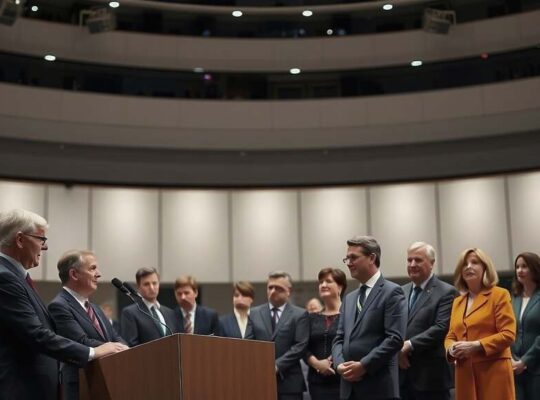A stark warning has been issued to the German government and state leaders from the mayors of the nation’s 13 state capital cities, demanding a fundamental overhaul of municipal finances. The escalating deficit crisis, reaching levels unseen since 1990, threatens the stability of local authorities and requires urgent intervention, they argue.
The mayors, representing cities including Stuttgart, Dresden and Munich, have jointly appealed to Chancellor Friedrich Merz and state premiers, highlighting a 2024 municipal funding shortfall of €24.8 billion. This substantial deficit, they state, is primarily driven by soaring social expenditures – particularly in social welfare, youth services and disability assistance – coupled with rapidly increasing personnel costs. The strain is further exacerbated by chronic underfunding of essential public services such as hospitals and public transportation.
The crux of the issue lies in the current misalignment of financial responsibilities. While the principle of “who orders, pays” – the idea that the entity assigning a task should bear the cost – is applied between states and municipalities, this crucial tenet is conspicuously absent in the relationship between the federal government and local authorities. Duties mandated by federal law are routinely passed down to municipalities without adequate compensation, creating a growing legal and financial void. A commissioned expert opinion from Stuttgart confirms this significant gap and the ensuing pressure on cities and municipalities.
The mayors are proposing a three-pronged approach to rectify the situation. Firstly, they demand that the federal government fully compensate municipalities for any future financial burdens imposed upon them. Secondly, they advocate for a readjustment of the municipal share of value-added tax, or alternative mechanisms to offset existing financial overloads, ultimately forcing the federal government to “rectify past failures” in financial responsibility. Thirdly, they emphatically caution against any new commitments or obligations being agreed upon by the federal government and states that would negatively impact municipal finances.
This coordinated appeal signals a growing frustration among Germany’s urban leaders and raises serious questions about the federal government’s long-term commitment to ensuring the financial viability of essential local services, potentially leading to a power struggle between Berlin and the Länder. The ultimatum underscores a potential crisis in German governance and highlights the precarious position of municipalities struggling to maintain critical functions amidst dwindling resources.












